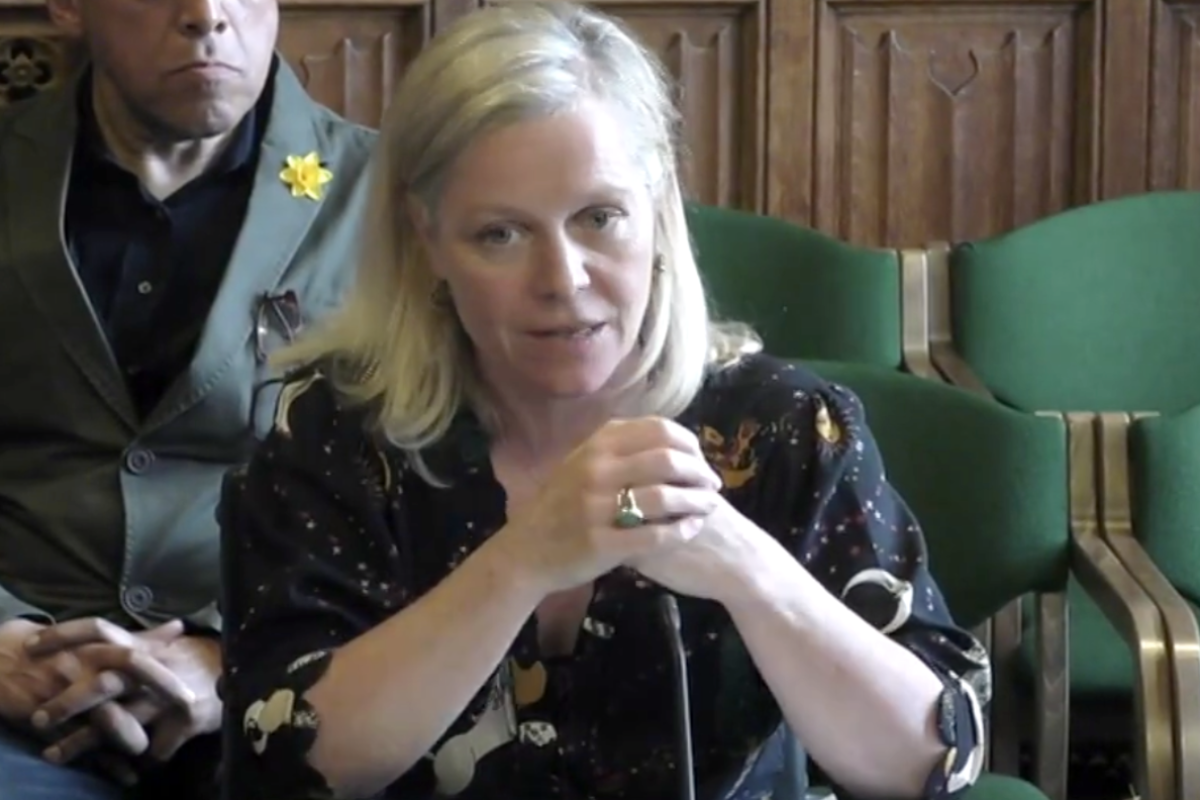
BBC Chief Content Officer Charlotte Moore speaking to the DCMS Committee today
Photo: parliamentlive.tv
BBC executive says classical music sector ‘in crisis’
The broadcaster’s Chief Content Officer confirms the BBC’s classical music budget will seek to have a greater impact on education and reaching new audiences.
The classical music sector is in “real crisis” but the BBC remains “absolutely committed" to it, the broadcaster's Chief Content Officer, Charlotte Moore, has told MPs during a Culture, Media and Sport Committee meeting today (13 June).
During the meeting, Moore said the BBC will continue to set aside £60m for classical music annually and will be looking to use the investment to support education and partnerships with both professional and amateur choirs across the country, in a bid to grow classical music audiences.
“We are in a real crisis in the classical music sector and I think for the BBC to be looking at what role we should be playing in the future that fits our public service mission is absolutely the right thing to do,” Moore said.
READ MORE:
- What caused the axe to fall on the BBC Singers?
- BBC to explore alternatives to proposed orchestra cuts
The BBC’s approach to supporting classical music has been under scrutiny since plans to axe BBC Singers were revealed, before the choir was given a reprieve following widespread backlash. The broadcaster has since stated that alternative funding models for its professional musicians will be considered, after giving the Singers a prominent role at this year’s Proms.
When asked by Labour MP Kevin Brennan to respond to rumours that the BBC’s proposed classical music cuts, and the plan to disband BBC Singers, will be back on the table after the BBC Proms, Moore said that is “absolutely wrong”.
“This is all about us trying to find a new model for our performing groups and classical music that is fit for the future,” Moore said.
“The classical music review that we did last year came out with some very good recommendations that musicians unions and most of the classical music sector absolutely agreed with.
“We felt we could have a greater impact on education, we could partner more with orchestras across the UK, including amateur and professional choirs, that we want to open up the classical music industry to more people and that we also really wanted to look at how we can grow our classical music audiences.”
Moore’s comments reflect plans outlined in the BBC’s strategy for classical music, published in March.
The strategy, which was where the 20% cuts to BBC Orchestras were first outlined, also committed to doubling funding for music education, launching new training initiatives and creating a single, digital home for the BBC’s orchestral content.
It adds the BBC will launch a major nationwide music education offer, aiming to reach every school in the UK through online, broadcast and live performance, with further details expected in August.
While stating he was “glad” to hear the BBC will be expanding its education offering, Brennan added it “will be difficult to replace the hollowing out of the government in the last decade of music education in our schools”.
Join the Discussion
You must be logged in to post a comment.